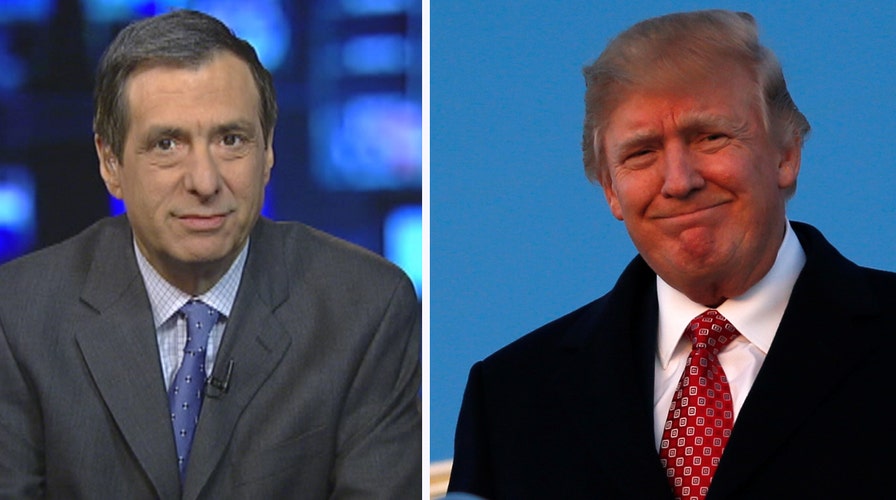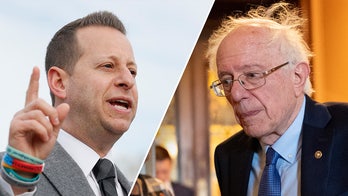Kurtz: Why Trump avoided the press
'MediaBuzz' host Howard Kurtz weighs in on how President Trump's new travel ban executive order has been overshadowed by his claims the Obama administration wire tapped Trump Tower
The Trump administration is suddenly making a whole lot of news.
The long-delayed rollout of a new temporary travel ban took place yesterday—with Donald Trump offstage and three Cabinet secretaries in the spotlight—reflecting a signature campaign issue for the president.
The White House is also working with Hill Republicans on an ObamaCare replacement bill with the aim of unveiling it this week.
When I talk to administration officials, they say these are precisely the kind of issues that ordinary folks care about and the media should cover them more. Fair point.
But the reason these policy initiatives are having to compete for ink and airtime is the president’s own doing.
His weekend tweeting of an unproven allegation that Barack Obama had him wiretapped during the campaign caused a media explosion. And it’s hard to complain about the media’s priorities when the president accuses a former president of doing something that nefarious and everyone scrambles to cover it.
Since then, Republican members of Congress, such as Jason Chaffetz and Tom Cotton, have said in television interviews that they don’t have any evidence to support Trump’s allegation.
The FBI has leaked word that James Comey has no such evidence and wants the Justice Department to say so in a statement. (He’s suddenly publicity-shy?) Former intelligence director James Clapper flatly denied any such wiretapping.
Kellyanne Conway and Sarah Huckabee Sanders have said on the air that Trump believes the wiretapping happened, that he has access to intelligence that others don’t and that congressional investigations should look at this—but have provided no further evidence.
News outlets have been filled with such stories as “A Conspiracy Theory Born on Talk Radio” (New York Times); “Inside Trump’s Fury: The President Rages at Leaks, Setbacks and Accusations” (Washington Post); “Wiretapping Allegations Accomplished What Trump Wanted—But May Backfire” (Post); “Poll: Most Back Special Prosecutor for Russia Investigation” (CNN, and it’s 65 percent); and “Knives Are Out for Reince” (Politico).
By the way, after every administration controversy there are leak-filled stories about how Reince Priebus is in trouble, but Trump is continuing to back his chief of staff.
Now there’s been a fair amount of coverage of the revised travel ban, replacing the one that was blocked by a federal appeals court: It doesn’t take effect for 10 days, green-card holders are exempt and Iraq has been removed from the original list of seven countries.
But here’s what’s telling. Sean Spicer’s regular White House briefing was switched to an off-camera gaggle yesterday, and what was to have been the first televised State Department press briefing was canceled.
One might assume that the new ban was announced by Rex Tillerson, Jeff Sessions and John Kelly to show the greater preparation that went into drafting it. But they took no questions, and the press pool wasn’t even allowed in to watch the president sign the executive order.
My assumption is that Trump wanted to avoid reporters shouting questions about the wiretapping allegation, which would distract from the news he wanted to make by highlighting the news he was trying to leave behind.





